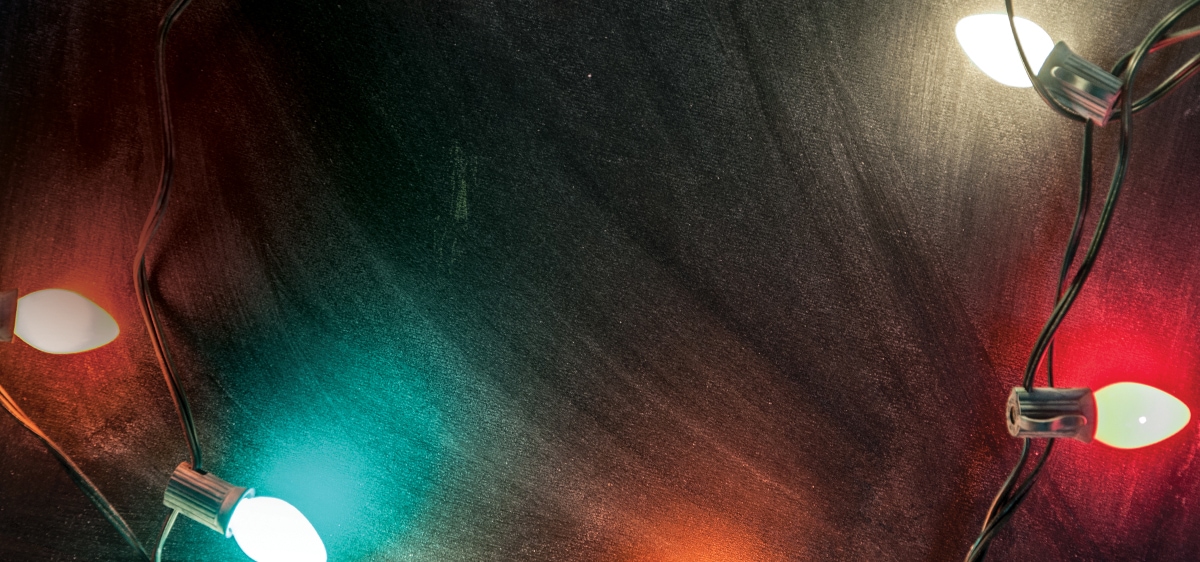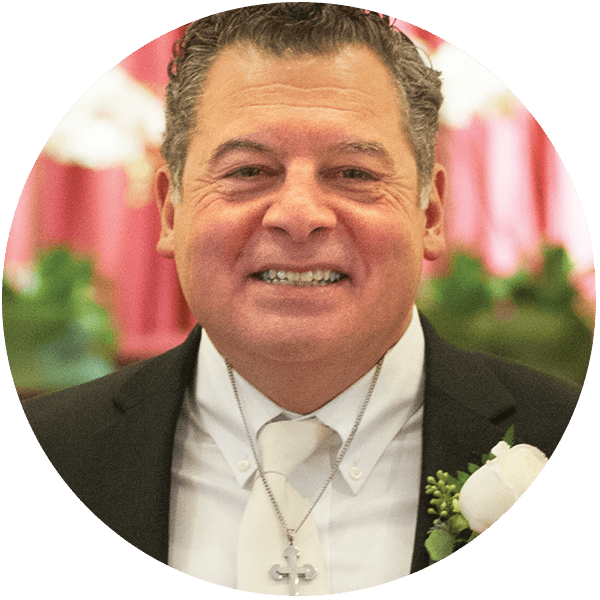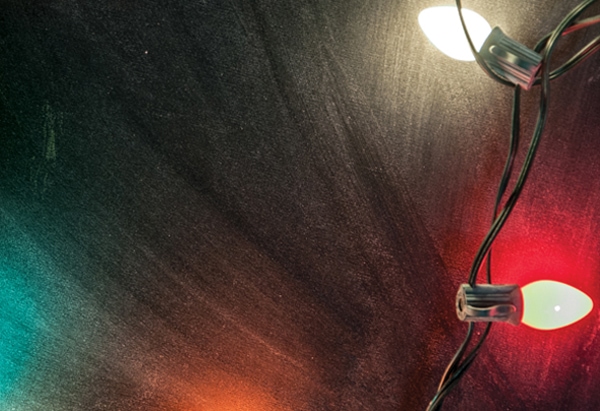[vc_row][vc_column][vc_column_text]

[/vc_column_text][/vc_column][/vc_row][vc_row el_class=”hero-header-text”][vc_column][vc_column_text]
The Dark Night
God incarnate finds us even in the shadow of our fears and failures.
By Chris Haydon | December 20, 2017
[/vc_column_text][/vc_column][/vc_row][vc_row][vc_column][vc_column_text]
When I was a little boy I was afraid of the dark. We had a scary basement with only a single light bulb hanging over the washer and dryer, leaving everything else in shadows. Often I was alone at home and it was my job to do the laundry. I had to force myself to go down there, sometimes in tears, ready to flee screaming at a moment’s notice.
Over the years I grew out of that fear—until I found myself working the midnight shift as a campus police officer in college. The places I had to patrol were often dark, far from campus, and secluded from other people. I remembered my childhood fears of dangers in the dark, and night after night they came back to haunt me. So I decided to conquer my fear. Each night as I approached the scariest places I would leave my flashlight in the cruiser and make my patrol in the darkness. I would stop to let my eyes adjust, letting myself become accustomed to the dark.
It worked. I never had that fear of the dark again. It became a companion, a shroud around me as I walked.
I think we all grow accustomed to the dark—not around us but within us. We carry fears and guilt, shadows that keep our sins secret, dark that masks our doubt of God, fear that we won’t be loved, accepted, cherished. We hide it all away. In the dark are the hurts and wounds, the heartbreaks and betrayals, the losses and loneliness and grief. In the dark lurk remorse and regret and a dozen other demons, real and imagined. In the light we seek God; in the dark we hope to hide our ungodliness from him.
On that first Christmas night the shepherds came out of the darkness trembling with fear and excitement—and at the same time shining the light they had received from angels: “Good news, great joy, God with us!” They dropped to their knees at the sight of holiness, trying to contain their laughter for the silly, impossible joy of it all. Mary and Joseph saw that light and their fears and darkness disappeared. The light of the world shone out of a dark barn and the world was forever changed.
Why did Jesus come at night? Perhaps because the darkness is where we most need to be found. The Light of the world enters our darkest places. God became truly human for our inhumanity, holiness for our perversity, peace for our suffering and fear, joy for our despair.
Why did Jesus come at night? Perhaps because the darkness is where we most need to be found.
But the Light of the world also shines for each of us in particular. Into the dark night of our own souls, God comes. Jesus is born. As shepherds trembled to look into the manger, do we dare to look into the depths of our own heart to see Christ being born there? Are we tired enough of hiding from ourselves, sick enough of the facades that protect us, desperate enough to let holiness reach in and touch us? But who could fear a tiny child? Isn’t that the point of this ludicrous miracle? Are we afraid to know how much God loves us—or are we perhaps afraid that he couldn’t? Do we fear that his love won’t make a difference, or do we fear that it will—that we will actually be changed? Perhaps our fear keeps us hiding in the dark.
The late Jesuit priest Brennan Manning spent a lifetime seeking and hiding from God, embracing God’s love and rejecting it, too addicted to his old heart to let it go—until he finally did. In All Is Grace he asks, “Do you believe that the God of Jesus loves you beyond worthiness and unworthiness, beyond fidelity and infidelity—that he loves you in the morning sun and in the evening rain—that he loves you when your intellect denies it, your emotions refuse it, your whole being rejects it? Do you believe that God loves you without condition or reservation and loves you this moment as you are and not as you should be?”
In Jesus, God pursues us with a wild, relentless love. It is terrifying because it is out of our control, and it is what our heart longs for because it is our truest life. In his coming, he invites us to come and see, to behold our Savior being born in our own heart, for new life. He loves us with an everlasting love and wants us to shine that light into the darkness of every life.
Christ the Savior is born. Joy to the world!
And in that coming he invites us to come out of hiding, to let go of our fears and embrace his love. He invites us to become kinder lovers of the people in our life, more compassionate friends to those who need us. Can we do that? Can we let go of judging and competing and be free to serve? Will we be eager to welcome others? Like the shepherds, we are called to simply share the light and joy with those who are dying for new life and longing for that kind of love.
Pastor and theologian Frederick Buechner writes, “Those who believe in God can never in a way be sure of him again. Once they have seen him in a stable, they can never be sure where he will appear or to what lengths he will go or to what ludicrous depths of self-humiliation he will descend in his wild pursuit of us. If holiness and the awful power and majesty of God were present in this least auspicious of all events, this birth of a peasant’s child, then there is no place or time so lowly and earthbound but that holiness can be present there too. And this means that we are never safe, that there is no place where we can hide from God, no place where we are safe from his power to break in two and recreate the human heart because it is just where he seems most helpless that he is most strong, and just where we least expect him that he comes most fully.”
Christ the Savior is born. Joy to the world.
[/vc_column_text][/vc_column][/vc_row][vc_row el_class=”cc-author-bio”][vc_column width=”1/4″][vc_column_text] [/vc_column_text][/vc_column][vc_column width=”3/4″][vc_column_text]
[/vc_column_text][/vc_column][vc_column width=”3/4″][vc_column_text]
About the Author
[/vc_column_text][vc_separator color=”black” style=”dotted”][vc_column_text]
Chris Haydon is pastor of Trinity Covenant Church in Lexington, Massachusetts. He has quoted the same passage by Frederick Buechner in his Christmas Eve sermons for the past thirty-five years.
[/vc_column_text][/vc_column][/vc_row]














